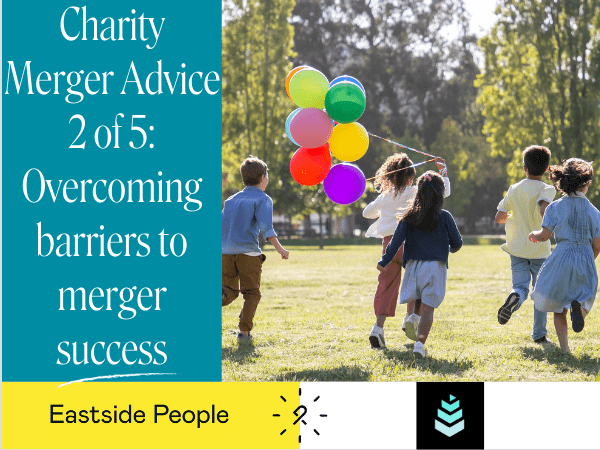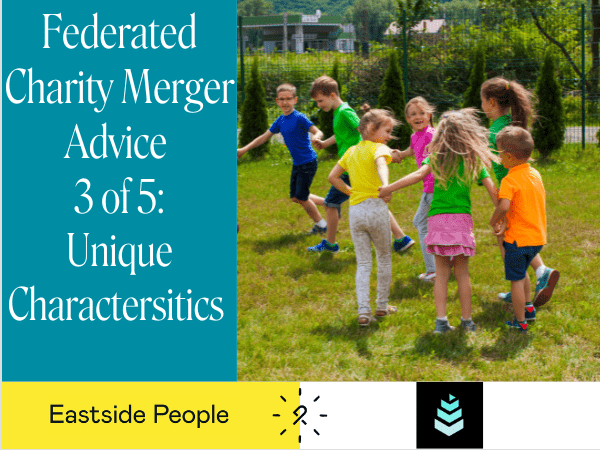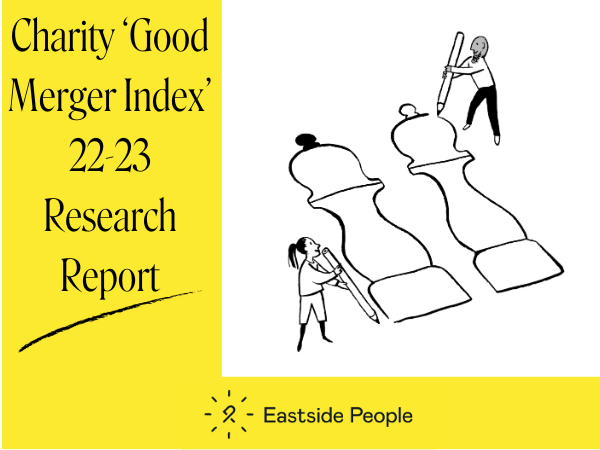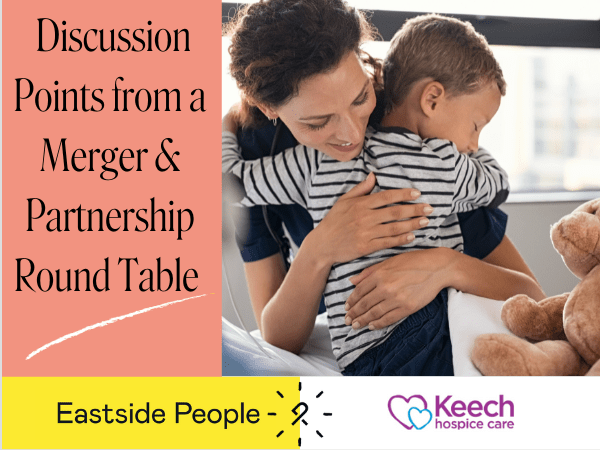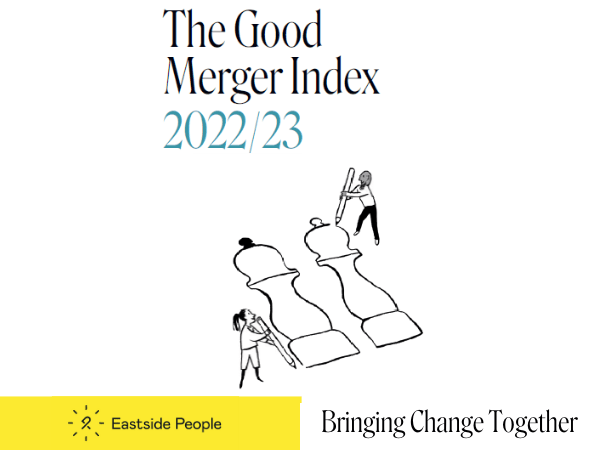Steve Chu Merger Blog – Advice for all charities considering a merger
Steve Chu’s recent Masters dissertation explored the barriers to successful mergers within federated charity networks. It found a lack of previous research into charity mergers, and almost no recent research into federated charities such as Age UK, Mind, RSPCA and Citizens Advice.
This series of five blogs aims to distil his key dissertation findings into short, readable snapshots which are aimed to be of use to all charity leaders considering a merger with another charity. The dissertation formed part of Steve’s MSc in Charity Accounting and Financial Management, from Bayes Business School.
The 5 blogs cover:
- Drivers for merger, desired outcomes
- Overcoming barriers to merger success
- Mergers and the unique characteristics of federated charity networks
- Charity merger recommendations
- Wider recommendations for federated charity networks.
The first blog in this series explored the reasons why charities consider merging. But charity mergers are viewed negatively by many, as being “not a thing that charities do”, or even “a dirty word.” Often, Chief Executives or Trustees are blamed for not wanting to give up power and control.
The second blog in the series outlined some barriers to successful charity mergers, and how they may be overcome – these are mostly human factors which may hinder, or help, rational decision-making.
The third blog explores specific factors within federated networks, where the presence of an additional stakeholder, in the shape of a national charity, provides an important additional factor.
Blog 4 of 5: Recommendations for charity mergers
My previous blogs in this series have explored the barriers to charity mergers and how they can be overcome, with additional considerations for federated charity networks. In this fourth blog, I summarise some merger recommendations which are relevant throughout the charity sector.
Focus on your charity’s beneficiary outcomes
Too often, charity leaders can be fixated on the survival of their entity, over and above beneficiary outcomes. By focusing conversations on how best to maximise impact, a merger can be viewed as a strategic tool to achieve more. The Charity Commission could support this approach by reinstating its previous “duty to consider” advice, so that merger discussions can be normalised and viewed as part of an annual strategy-setting conversation, not a “dirty word” only to be uttered in extremis.
Use opportune moments
Advanced knowledge that a Chair or Chief Executive is planning to step down can enable a less emotional review of the full range of future leadership options for the charity, with a key barrier removed. Charities should be encouraged not automatically to think of replacing the leader, but using the forthcoming vacancy as an opportunity to think afresh.
Charity Leader training and development
Some resistance to mergers is that they are viewed as a step into the unknown, whereas the presence of a leader with previous merger experience can help to overcome barriers. The development of specialist charity leader training courses focused on merger considerations and implementation, peer support, and transformational and visionary leadership, could improve leader confidence in responding positively to a potential process.
Additional human support
Merger due diligence processes can be time-consuming and will usually benefit from specialist legal, HR, and merger consultancy input. My study found that written toolkits alone aren’t enough. Specialist, independent support, who can reassure Boards, can add confidence to decision-making processes.
A risk-averse mindset effectively ends some merger considerations before they start. It’s easy to focus on fears of change and associated risks. But, for many charities, an assessment of the risks of no change, of continuing on with struggling finances, low beneficiary impact, and lack of internal resources, can realise even greater risks. Making use of opportune moments, developing a more visionary mindset, and using expert resources, can provide a more balanced comparison between the real risks of merging with the risks of staggering on with the status quo.
About the author:
Steve Chu, an experienced charity leader and non-executive director was previously Chief Executive at Age UK Sheffield. He is now an Eastside People consultant and freelance charity consultant.
For more information, or to receive a full copy of the dissertation, please visit www.stevechu.co.uk.
























